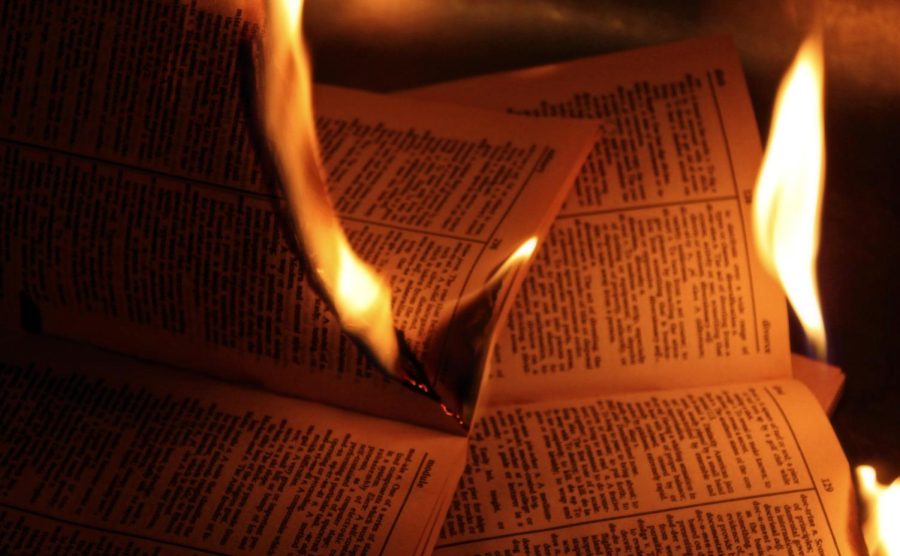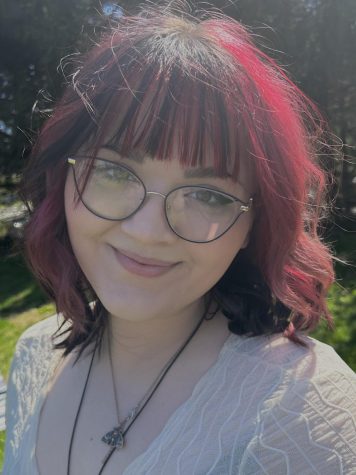Censorship in Education: Who are You Without Literature?
January 26, 2023
Note: This is the first of two works examining censorship.
Literature is for anyone who wants to enhance their knowledge, discover who they are, and cultivate confidence in themselves through representation. Censoring books jeopardizes adolescents’ ability to express themselves and pursue their interests. As an aspiring secondary English teacher, this upsets me. I want to provide my students with a library full of books that are rich in information and representative of diverse identities.
This fresh effort to empty bookshelves at our schools and libraries is catastrophic to the development of our youth. In fact, it seems like the individuals who are stripping our youth of classic novels are their own parents and school board members. Counties in each U.S. state can choose which books they want to ban; this puts the power into the hands of the community, school administrations, and the parents of the students. Classic novels have been banned in some areas, such as: To Kill a Mockingbird, Fahrenheit 451, Frankenstein, Animal Farm, 1984, Anne Frank: The Diary of a Young Girl, The Hate U Give, and even the Harry Potter series. Those are just some of the more famous titles. According to a Reader’s Digest article published this January, Anne Frank’s diary was banned in one instance because an anatomic description of a 14-year-old girl was considered “pornographic.” One Alabama school board member even asked for it to be banned because it was “a real downer.” Now, these students can’t read, study, and learn about the Holocaust from the perspective of someone who was their own age!
Common pro-censorship arguments often include the theme of morality. Parents believe that their children will be morally corrupt if they read books with themes that are against their beliefs. The idea is that since these books are a part of public education, the student will consider it normal, and thus the school system is “forcing” values onto them. Parents believe that by assigning certain books, or allowing certain books in a classroom library, that schools have an agenda for corrupting the morals of their children. Judy Blume, a best-selling and award-winning children’s author discusses how censorship “grows out of fear, and because fear is contagious, some parents are easily swayed. Book banning satisfies their need to feel in control of their children’s lives. This fear is often disguised as moral outrage. They want to believe that if their children don’t read about it, their children won’t know about it. And if they don’t know about it, it won’t happen.” She puts this perfectly. In a generation where most children have access to technology, they have the world at their fingertips. Their rebellious curiosity may prompt them to read these books regardless.
Books that fall victim to the claws of censorship often include some violence or profanity; however, an enormous chunk of books include themes of queerness, racial themes, religion, and some type of rebellion against how things “should” be. These books are so controversial, especially in small towns that lack diversity. Banning these books can do more damage than good when it comes to the autonomy of our future generations. It is often easier to grow up and robotically follow the beliefs of your parents, but if one decides to embark on their own journey of self-discovery, then books are often their first channel of self-actualization. Growing up in a small, rural town that lacked diversity named Tell City, Indiana, books allowed me to escape the walls I was trapped in and discover who I was. It was reassuring to see characters whom I could relate to within the walls of their own universe. To think that older generations are trying to rip this opportunity from the youth is disturbing and selfish of them.
During high school, I was fortunate to read Fahrenheit 451. For those who have read it, you may understand the irony of learning that it has been banned. Fahrenheit 451 is a dystopian novel in which books are burned to keep society happy; if people cannot form their own opinions, then there will be less conflict. With the banning of this novel, we are being put into the plotline; this dystopian world has become our reality. If we are banning books that are progressive, then will we ever progress as a society? By censoring queer books and authors, books on racism, books by people of color, and books that show the reality of our nation’s “whitewashed” history, we are staying complacent. Representation and exposure to these topics are so important for the well-being and awareness of our future generations.
Books are meant to be enjoyed. They are not a political debate. If you don’t like a book, then don’t read it. There are reasons why these books have been taught in schools for so many years and some profanities are not going to change what the students get out of it. Denying a person’s access to literature is the same as cutting off their oxygen, leaving their brain to rot in its lack of knowledge, perception, and awareness.
Read a subsequent opinion piece about censorship here.



